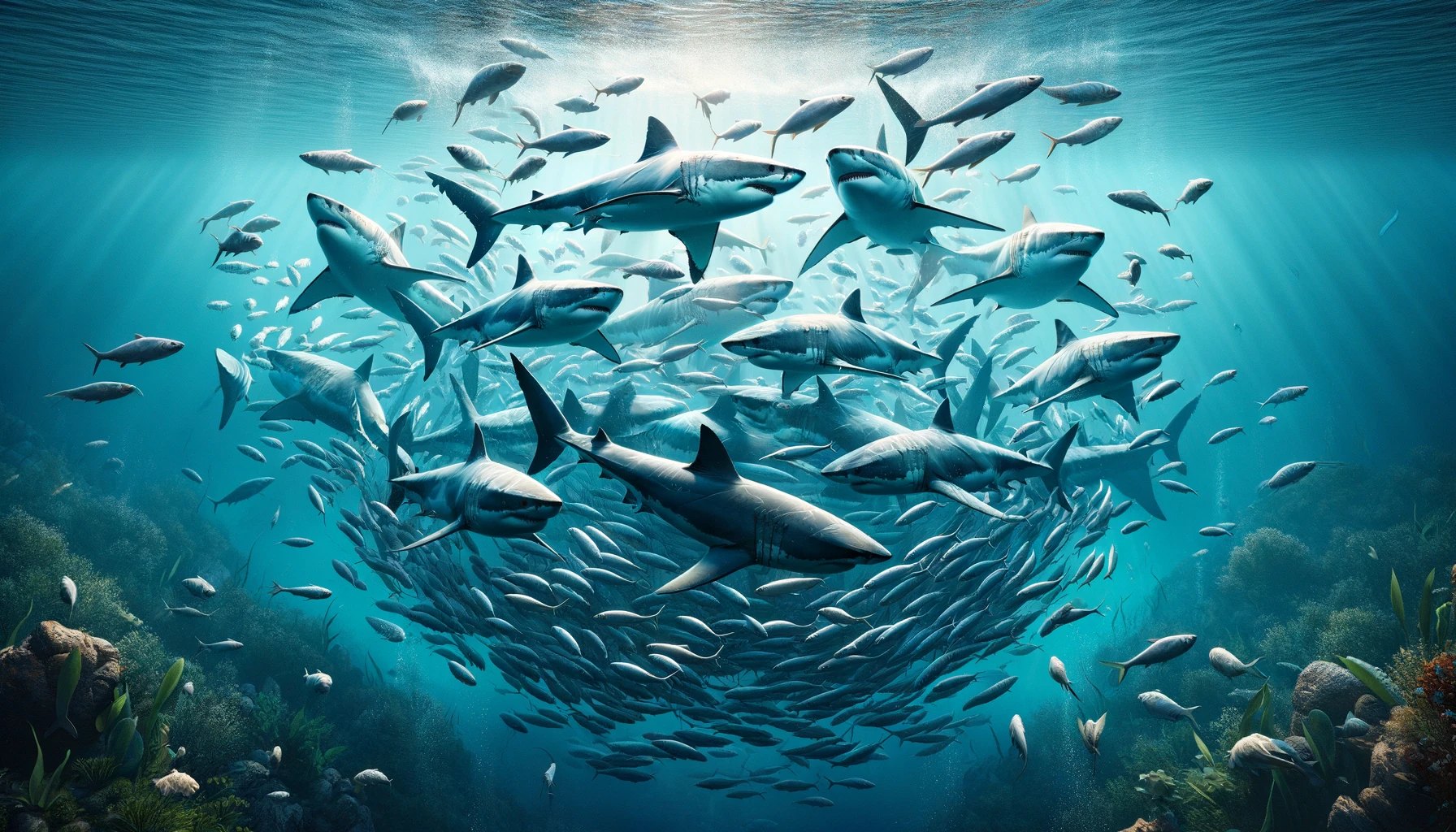About Us
Contact Us
Advertise With Us
Disclaimer
Privacy Policy
Terms & Conditions
Copyright © 2024 - BoldDiscussions.com

Believe it or not, the mighty great white sharks, often seen as solitary hunters, might just be looking for companionship in the vast ocean. Recent studies have started to peel back the layers of mystery surrounding these magnificent creatures, revealing a side of them we hardly knew existed.
The serene waters near Guadalupe Island, off Mexico's coast, become a bustling hub for great white sharks every year. Contrary to what we've always thought, these predators seem to enjoy each other's company, much like friends embarking on a joint venture. Picture this: groups of great white sharks cruising together near seal colonies, almost as if they're teaming up for a grand feast.
Dr. Yannis Papastamatiou's research at Florida International University is pioneering in this area. By tracking sharks with specially designed tags, his team has observed prolonged interactions among them, suggesting a level of social bonding previously unconsidered in these creatures. "We've seen sharks swimming together for over an hour, hinting at possible social connections," Dr. Papastamatiou notes.
The study unveils the complexity of shark interactions. While some sharks display a preference for companions of the same gender, others show unique social behaviors and associations. For instance, one shark was noted to mingle with a dozen peers in just 30 hours, while another kept its circle small, interacting with only two others over several days.
Their hunting strategies vary as well, with some preferring the shallow waters and others the deep, and some active by day, others by night. This diversity begs the question: Why do these solitary hunters seek each other out? Dr. Papastamatiou proposes, "It could be a strategy to stay close to other sharks that are successful in hunting, allowing them to share in the spoils."
This eye-opening research, detailed in the journal Biology Letters, opens new doors for understanding and protecting great white sharks. By revealing their potential for forming non-random friendships, it encourages further investigation into their social structures and behaviors.
Advanced technology is key to uncovering the hidden lives of these sharks. "With each technological advancement, we're able to uncover more about their secret lives, paving the way for future research," says Dr. Papastamatiou.
Great white sharks, long viewed as lone predators, may actually thrive on social interactions. This discovery challenges our perceptions and underscores the need for ongoing research and conservation efforts to protect these fascinating creatures and their ecosystems.
Disclaimer.
This article provides information only and should not be construed as advice. It is provided without warranty of any kind. Also please note that content on this platform may be subject to copyrighted material. If you believe we have used your content in any way then please get in touch with us. We will take down your content immediately.
Share This Post





BOLDDISCUSSIONS
We Produce Content That informs, Educates And Entertains People Around The World to stay updated on every topic with confidence.
Copyright © 2024 – BoldDiscussions.com

